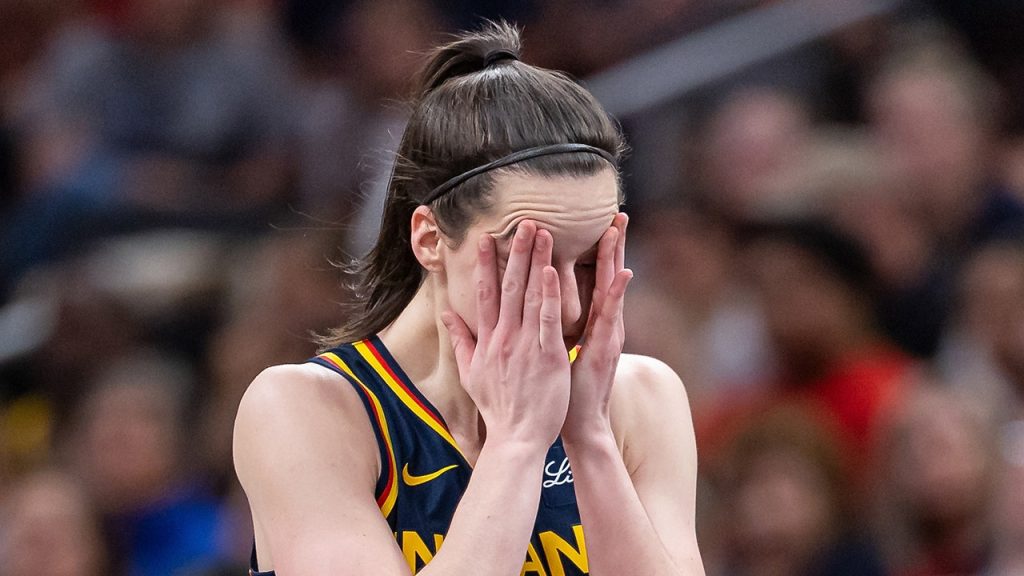Caitlin Clark expressed frustration over not getting foul calls during the Indiana Fever’s loss to the Minnesota Lynx, citing instances where she was hit by opposing players without a whistle. She admitted settling for mid-range jump shots but believed she was fouled in those moments. Clark acknowledged the need to improve her control of emotions but defended the passion and emotion she and her team exhibit during games. However, she also recognized the importance of keeping a cool head, as demonstrated when she remained on the floor after a hard foul by Minnesota’s Napheesa Collier, leading to a Lynx score that contributed to the Fever’s defeat.
The incident with Collier is just one example of the physical treatment Caitlin Clark has encountered since joining the WNBA. She was previously involved in other hard fouls, including a hit by Chicago Sky player Diamond DeShields and an illegal hip check from Chennedy Carter. Former NBA All-Star Joakim Noah suggested that the Fever should sign an enforcer to protect Clark from opposition players who are overly physical. While acknowledging that such treatment may be due to Clark’s talent and impact on the game, Noah sees it as an opportunity for the Fever to ensure her safety on the court. Despite the challenges she faces, Clark remains determined to navigate the physicality of the WNBA and continue making an impact for her team.
Some figures in the basketball world have differing views on the aggressive treatment of Caitlin Clark on the court. NBA Hall of Famer Charles Barkley criticized players for their behavior towards Clark, suggesting that their actions undermine the attention and success she has brought to both college and professional basketball. On the other hand, ESPN broadcaster Holly Rowe and Noah himself believe that the physicality serves to enhance the entertainment and competitiveness of the game. They see it as a part of the sport that adds an element of excitement and intensity for players and fans alike. Despite the various opinions, the focus remains on Clark’s resilience and determination to overcome adversity on the court.
The emotional aspect of handling physical play is a challenge that Caitlin Clark continues to navigate as she adjusts to the demands of the WNBA. Her coach, Christie Sides, emphasized the importance of maintaining composure and focus, especially in crucial moments during games. Sides highlighted the need for Clark to approach difficult situations with a cool head and avoid getting drawn into emotional reactions that could negatively impact the team’s performance. As Clark works on managing her emotions and responses to physical play, she remains committed to improving her game and making a positive impact for the Indiana Fever.
While the physicality Clark faces on the court presents challenges, it also highlights her competitive spirit and determination to succeed in the WNBA. Her ability to handle hard fouls and maintain focus under pressure is a testament to her resilience and maturity as a young player in the league. With the support of her team, coaches, and fans, Clark continues to strive for excellence and prove herself as a rising star in women’s basketball. Despite the obstacles she encounters, Clark remains steadfast in her commitment to growth and development in the face of adversity, setting an example of perseverance and determination for others in the sport.


